The Nursing Home Law Center is committed to providing the legal resources necessary to hold negligent facilities accountable.
Chicago Nursing Home Abuse Lawyer
At Nursing Home Law Center, we focus on elder neglect and abuse claims and are dedicated to protecting the rights of the elderly and their families throughout Chicago and Illinois.
If your loved one has been harmed in a nursing home or assisted living, you deserve an experienced elder abuse law firm to fight for justice.
Recent Settlements for Nursing Home Residents
- $3,845,000 Bed Sore Settlement – A Cook County facility’s neglect of an elderly resident led to Stage 4 pressure sores; the settlement covered medical costs, pain and suffering from the bed sores.
- $2,176,300 Fall Settlement – A dementia patient’s fall caused multiple fractures, revealing the facility’s lack of safety protocols.
- $1,968,450 Sexual Abuse Settlement – A staff member sexually assaulted a disabled woman; the facility neglected background checks.
- $1,742,900 Malnutrition & Dehydration Lawsuit – ion. A resident died from severe dehydration due to staff neglect. The lawsuit exposed understaffing and poor supervision.
- $1,287,600 Medication Error Settlement – A patient received the wrong medication for weeks, triggering a serious medical emergency.
We thoroughly investigate to secure compensation for medical costs, emotional distress, and other damages. Our team will communicate throughout the case, ensuring you and your family stay informed and supported.
Find A Nursing Home Abuse Lawyer Near You
We are centrally located in downtown Chicago at 225 West Wacker Drive, serving all of Cook County and surrounding suburbs, including Evanston, Oak Lawn, Tinley Park, and more. Contact us today to discuss your case.
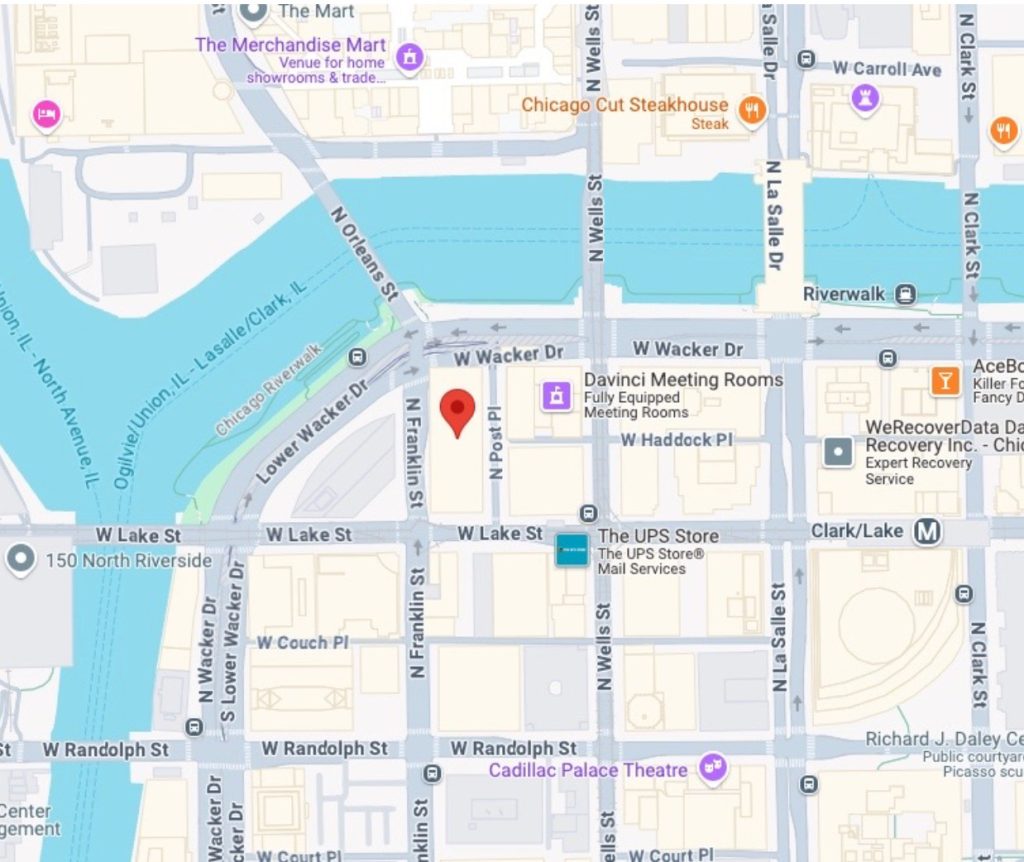
Elder abuse in Illinois is a rising public health issue, with only 1 in 24 cases reported. Many go unreported due to fear, cognitive decline, and nursing home cover-ups.
Many victims of nursing home abuse or neglect can’t or don’t report abuse:
- Fear of Retaliation: Nursing home residents rely entirely on caregivers for daily needs and avoid physical harm. But a resident may fear more neglect or abuse in retaliation
- Cognitive Impairments: Many residents suffer from dementia, Alzheimer’s, or other conditions and don’t recognize or remember abuse. Perpetrators exploit this vulnerability.
- Shame and Embarrassment: Victims of sexual abuse or other nursing home neglect may feel ashamed to report anything, especially if they are without family.
- Isolation and Limited Communication: Without regular visitations, warning signs go unnoticed. Abusive staff isolate residents to prevent them from speaking up.
- Nursing Home Cover-Ups: Nursing homes may fail to report incidents to state agencies or law enforcement to protect their reputation and avoid legal liability. A government report found that 1 in 5 ER visits from nursing homes results from neglect or abuse. Facilities frequently under-report these incidents.
Many area nursing homes have received poor state inspections due to chronic understaffing, inadequate medical treatment, and repeated safety violations. These failures put vulnerable residents at serious risk. Without intervention, abuse can persist for years.
Our legal team works to expose hidden cases of nursing home abuse, holds negligent homes accountable, and secures maximum compensation for victims. If you suspect nursing home abuse or neglect, do not wait. Seeking legal help can protect your loved one and prevent harm to other residents.
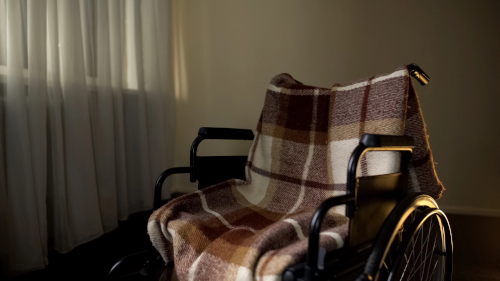
Why Hire Nursing Home Law Center
We specialize in fighting nursing home abuse and neglect in Illinois, leveraging our expertise to hold long-term care providers accountable.
Dedicated to Elder Nursing Home Abuse and Negligence Cases
Unlike general personal injury firms, we exclusively handle Chicago nursing home abuse and neglect claims so we can:
- Stay current on Illinois nursing home laws, regulations, and case precedents.
- Work with medical experts and industry professionals to build compelling cases.
- Recognize patterns of nursing home neglect and nursing facility violations that other attorneys might overlook.
Proven Track Record of Success in Nursing Home Neglect Cases
Our attorneys have secured millions for victims of nursing home abuse in Chicago, holding major chains accountable.
Aggressive Legal Representation With Compassionate Client Support
We understand that families can be overwhelmed filing a claim against a nursing home, so we provide:
- Clear, straightforward guidance on your legal rights and options.
- Regular updates so you are informed throughout the process.
- Personalized attention to ensure your case gets the attention it deserves.
No Upfront Costs – We Only Get Paid If You Win
We represent clients on a contingency fee basis:
- No upfront legal expenses or fees–You pay nothing out of pocket.
- We cover all case expenses, including investigation, filing fees, expert witnesses, and court costs.
- We only get paid if we win your case. Our fee comes from your settlement, never from you directly.
Holding Negligent Nursing Homes Accountable
We’ve successfully sued negligent nursing homes, including for-profit chains and understaffed facilities, for elder neglect. Legal action protects seniors and improves care. Taking legal action helps:
- Improve safety standards for all nursing home residents.
- Prevent abuse by exposing harmful practices.
- Secure compensation for victims and their families.
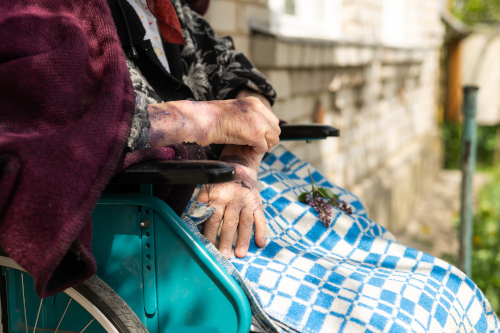
Types of Cases Handled by Our Nursing Home Abuse Attorneys
Nursing home abuse is any intentional harm, neglect, or exploitation of residents of a nursing home or assisted living facility. Mistreatment can have devastating physical, emotional, and financial consequences for residents and their families.
We handle many cases to protect the rights of older adults and their families, ensuring they receive justice and financial compensation for the harm they’ve endured. We represent victims in cases involving severe injuries, neglect, medical malpractice, and death, including:
Physical Abuse
Physical abuse in nursing homes includes visible acts like hitting, pushing, or rough handling. It may also involve improper use of physical or chemical restraints. These abuses can result in injuries ranging from bruises to broken bones, and in severe cases, can be fatal.
Emotional & Mental Abuse
Emotional abuse involves staff intimidating, humiliating, or isolating residents, causing psychological distress, depression, and anxiety. Verbal threats and manipulation can significantly harm elderly residents’ mental health and well-being.
Our nursing home lawyers represent victims in cases of neglect, abuse, and wrongful death, helping families hold negligent facilities accountable, with claims involving:
- Physical Abuse – Hitting, slapping, pushing, or improper use of restraints causing serious injuries.
- Emotional & Mental Abuse – Intimidation, verbal threats, and isolation lead to anxiety and depression.
- Sexual Abuse – Any non-consensual or inappropriate sexual contact targeting vulnerable residents.
- Medical Malpractice – Neglecting medical care, resulting in infections, bedsores, and untreated illnesses.
- Choking & Breathing Issues – Neglect can lead to choking incidents, clogged breathing tubes, or respiratory distress.
- Falls & Fractures – Inadequate supervision and unsafe premises lead to falls, broken hips, and head injuries.
- Neglect & Malnutrition – Dehydration, malnutrition, and neglect of basic needs, including refusing medical treatment to a resident.
- Medication Mistakes – Overdosing, incorrect prescriptions, and dangerous drug interactions.
- Unreasonable Restraints & Staff Failures – Facilities using unlawful restraints or failing to prevent harm.
- Wrongful Death – In the most severe cases, abuse and neglect lead to fatal injuries.
If your loved one was hurt in a nursing home or assisted living facility in Chicago, our attorneys can help. Contact us today for a free consultation.
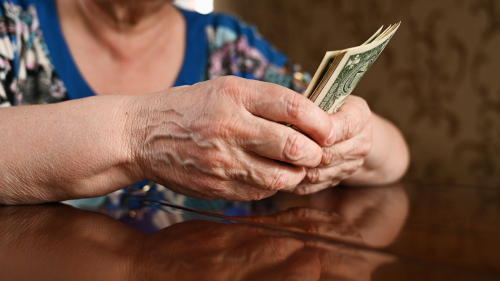
What Laws and Codes Protect Nursing Home Patients In Chicago?
Nursing home residents in Chicago and throughout Illinois are protected by federal, state, and local laws that ensure their right to quality care and protection from neglect and abuse in a home.
Federal and State Protections
- The 1987 Nursing Home Reform Act sets federal standards for Medicaid/Medicare-funded homes, ensuring Chicago residents’ rights to safety, proper care, and freedom from abuse.
- The Illinois Nursing Home Care Act provides additional protections, guaranteeing that Illinois nursing home residents are treated with dignity, respect, and proper care. Illinois’ Nursing Home Care Act also gives residents and their families the legal right to take action if a facility violates these protections, including nursing home abuse.
- The Illinois Department of Public Health (IDPH) regulates nursing homes, conducts inspections, and investigates suspected elder abuse, nursing home neglect cases, and substandard care complaints on its 24/7 nursing home hotline.
Chicago-Specific Nursing Home Protections
Chicago’s municipal code 4-6-100 includes provisions for long-term care facilities, reinforcing state and federal laws by ensuring compliance with staffing, safety, and emergency preparedness regulations. Nursing homes operating within Chicago must adhere to city health and safety inspections, facing fines or closure for non-compliance.
Chicago Elder Protection Initiative.
The Chicago Department of Family & Support Services (DFSS) runs an Elder Protection Program, offering local resources to investigate and address elder abuse and neglect in nursing and assisted living homes. The city works with Adult Protective Services (APS) to provide emergency assistance and intervention when needed.
Eligibility to File a Claim
If an elder abuse victim cannot file a lawsuit, other parties can take legal action on their behalf. Family members, legal guardians, or someone with power of attorney for the resident can pursue a nursing home misconduct case.
Should a resident die from abuse or neglect in nursing home facilities, the resident’s estate or close family members may file a claim. These claims hold Illinois nursing homes accountable for their actions and seek justice for the mistreated resident and their family.
Liability in Nursing Home Abuse And Neglect Cases
Liability can extend beyond the individual staff members directly responsible for the mistreatment.
Nursing Home Facility
The nursing home can be held liable if it fails to provide a safe environment for its residents. This includes inadequate staffing, poor training, or failure to implement proper safety protocols. When a facility prioritizes financial gain over resident care, it can lead to neglect and abuse, making the facility directly responsible for a resident’s harm.
Nursing Home Staff Members
Caregivers, nurses, or aides can be personally liable for mistreatment. This includes physical harm or abuse, verbal abuse, psychological abuse, neglect of basic needs, and failing to provide necessary treatment from the facility’s doctor or their own doctor. Staff members who abuse or neglect residents are legally accountable for their actions.
Medical Providers
Doctors, nurses, and other healthcare professionals who provide care to nursing home patients may be liable if their negligence harms them or leads to health complications. This liability can include prescribing incorrect medications, failing to monitor a resident’s health condition, or neglecting to treat injuries or illnesses.
Third-Party Contractors
Third-party contractors providing services like food, security, or medical care can be liable for neglect if their substandard care harms residents. For instance, a security company may be responsible if its failure allows unauthorized access and abuse occurs.
Owners and Administrators
Nursing home owners and administrators are liable for abuse and neglect if they fail to properly manage staff or address mistreatment reports, violating state and federal regulations.

Licensed in Illinois
How Our Chicago Nursing Home Abuse Lawyers Can Help
Our experienced attorneys are dedicated to fighting for elderly victims of nursing home abuse in Chicago and Illinois. We understand the impact of abuse on victims and families, and offer comprehensive legal services from consultation to trial, ensuring justice and fair compensation. Here’s how we can help:
Free Case Evaluation
We provide a free consultation to assess your case, address concerns, and offer guidance on the best course of action. Our legal team is available to answer questions and provide advice on suspected abuse and neglect with no obligation.
Case Investigation
We thoroughly investigate abuse claims by reviewing records, interviewing witnesses, and examining facility practices. We collaborate with experts to build strong cases for harmed residents.
Filing the Claim
Once we have evidence to support your case, we will file an abuse lawsuit against the responsible parties, including nursing home staff, administrators, and the facility itself. Our team ensures that all legal documents are prepared and submitted timely, allowing you to focus on your loved one’s recovery while we handle the case.
Settlement Negotiation
Nursing home abuse lawyers frequently secure compensation through settlement negotiations. We negotiate with the facility and their insurer to seek a fair settlement covering medical bills, pain and suffering, and other damages your loved one experienced.
Our goal is to obtain a settlement that reflects the full extent of harm without going through trial.
Trial Representation
Some nursing home negligence cases require a trial. If the responsible parties refuse fair compensation, our experienced trial attorneys are prepared to take your case to court.
We have a proven track record of success in representing victims of nursing home abuse in courtrooms across Illinois and will aggressively pursue justice on behalf of your family.
The Troubling State of Chicago’s Nursing Homes
Chicago has 221 Medicare-approved nursing homes. Most of them struggle with overall ratings and inspections. Specifically, 137 of these homes, or 62%, have received an overall rating of below or much below average. This indicates potential issues in health inspections, staffing levels, and quality measures.
The Centers for Medicare & Medicaid Services (CMS) uses a Five-Star Quality Rating System to assess nursing homes. This system evaluates facilities based on health inspections, staffing, and quality measures, providing an overall rating to help consumers compare care options.
Although some facilities meet acceptable standards, many in Chicago receive average or below-average ratings. This highlights the need for thorough research when choosing a home. Here are some of the lowest-rated facilities in Chicago:
The worst-rated nursing homes in Chicago include:
- Alden Estates of Orlando Park
- Alden Town Manor Rehab & HCC
- Bria of Elmwood Park
- Bria of River Oaks
- Bria of Forest Edge
- Zahav of Berwyn
Common Signs of Elder Abuse Among Nursing Home Patients
Elder abuse in facilities can take many forms, and recognizing the common signs is essential in protecting residents from further harm. These are some of the most frequent signs of elder abuse in nursing facilities:
- Unexplained bruises, cuts, or burns
- Broken bones or fractures
- Marks from restraints
- Sudden changes in behavior, such as withdrawal or anxiety
- Fearfulness around certain staff members
- Reluctance to speak openly about their care
- Unexplained injuries or infections like sepsis.
- Torn or stained underwear
- Difficulty sitting or walking
- Bedsores, malnutrition, dehydration
- Poor personal hygiene or dirty living conditions
- Untreated medical conditions, including mental illness
- Unauthorized withdrawals or credit card charges
- Missing personal belongings
- Unexplained changes in wills or legal documents by someone unable to handle their financial affairs
- Worsening health conditions
- Medication errors
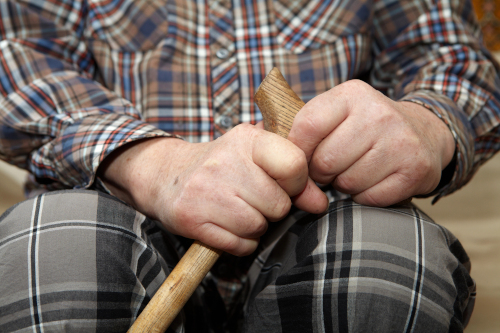
What to Do If You Suspect Nursing Home Abuse
If you suspect your loved one is experiencing abuse, act quickly to ensure their safety and hold those responsible accountable. Here are the essential steps to take to report nursing home abuse or neglect:
Immediate Danger: Call 911
If your loved one is in immediate physical danger or suffering from life-threatening harm, call 911 to contact local law enforcement. This ensures your family member receives medical care and protection right away.
Report to the Nursing Home Administrator or Management
If there isn’t immediate danger, file a complaint with the facility’s administration, requesting an internal investigation.
- Submit your concerns in writing and keep a copy.
- Request an official incident report and follow up on their response.
- Document signs of neglect or abuse, including photos, videos, and written statements from staff or other residents.
File a Complaint with the Illinois Long-Term Care Ombudsman Program
The Illinois Long-Term Care Ombudsman Program advocates for residents’ rights and investigates nursing home mistreatment complaints:
- Chicago Regional Ombudsman’s Office: Call (312) 744-4016
- State Ombudsman Program: Call (800) 252-8966
- Online Complaint Submission: Visit the Illinois Department of Aging website
Report to the Illinois Department of Public Health (IDPH)
IDPH is responsible for investigating nursing home violations and ensuring compliance with health regulations.
- Nursing Home Complaint Hotline: (800) 252-4343 (Available 24/7)
- Online Complaint Submission: File a report through the IDPH website
Report to Illinois Adult Protective Services (APS) Hotline
If suspected abuse of an elderly person is outside a licensed nursing home, contact APS.
- Illinois Elder Abuse Hotline: (866) 800-1409 (Available 24/7)
Report to the Illinois Attorney General’s Office
The Illinois Attorney General investigates cases of elder abuse and nursing home neglect.
- Senior Citizen Consumer Fraud Hotline: Call (800) 243-5377
- File a Complaint Online: Visit the Attorney General’s website
Contact a Nursing Home Abuse Lawyer
If you suspect neglect or abuse, speak with a nursing home abuse lawyer immediately. An experienced lawyer can help you understand your legal options, gather evidence, and file a negligence lawsuit against the facility if necessary.
A nursing home abuse attorney will ensure your loved one’s rights are protected and work to secure compensation for the harm they suffered.
Victims of abuse and negligence may be entitled to compensation, depending on the severity of the abuse and the harm suffered.
Economic damages cover the abuse-related measurable financial losses, including:
- Medical Expenses: Costs for hospital visits, treatments, medications, and rehabilitation resulting from the abuse.
- Relocation Costs: Expenses associated with moving the resident to a safer facility.
- Lost income may be recovered for a family member who takes time off work to care for the abused resident.
Noneconomic damages compensate for the emotional and psychological harm caused by abuse, including:
- Compensation for physical pain and emotional distress experienced by the resident.
- If the abuse caused a significant decline in the resident’s quality of life, this can be factored into the personal injury lawsuit.
- Emotional Trauma: anxiety, depression, and psychological harm caused by physical or emotional abuse.
Punitive damages are awarded in cases of particularly egregious or malicious abuse. These damages are intended to punish the wrongdoer and deter future abuse, and are not related to the actual harm suffered. It serves as a penalty for the abuse.
The Cost of Hiring a Nursing Home Attorney
At Nursing Home Law Center, we work on a contingency fee basis. You do not pay legal fees unless we win your case. This allows neglected victims and their families to pursue justice without worrying about the cost of legal representation. We wan tot ensure you receive the compensation you deserve without financial stress.
Time Limits For Legal Action in Chicago
If you suspect neglect or abuse in a Chicago home, act quickly. Illinois law sets strict statutes of limitations for filing a claim, and failing to take timely legal action can prevent you from recovering compensation.
Illinois Statute of Limitations for Nursing Home Abuse Lawsuits
Under 735 ILCS 5/13-202, the statute of limitations for Illinois personal injury claims, including nursing home abuse/neglect cases, is:
- Two years from the date of the injury or neglect.
- Two years from the date the injury was discovered or should have reasonably been discovered.
If the abuse results in death, 735 ILCS 5/13-209 allows the surviving family to file a claim, but within two years from the date of death.
If medical malpractice is involved, 735 ILCS 5/13-212 provides:
- A two-year deadline from the date of discovery, with a maximum of four years from the date of the malpractice.
Exceptions That May Extend the Filing Deadline
Some circumstances may pause (toll) the statute of limitations:
- Mental or physical incapacity of the victim (e.g., cognitive impairment from dementia).
- Fraud or concealment by the home delays the discovery of abuse.
- Cases involving minors (if a minor is harmed, the deadline may be extended until the minor turns 18).
These exceptions are rare, so it is best to consult a nursing home attorney immediately to preserve your right to seek justice.
Why You Should Act Quickly
- Delaying legal action increases the risk of lost medical records, missing witnesses, and destroyed surveillance footage.
- Witnesses’ memories fade over time, making it harder to prove neglect or abuse.
- Once the statute of limitations expires, you lose your right to file a lawsuit and pursue compensation.
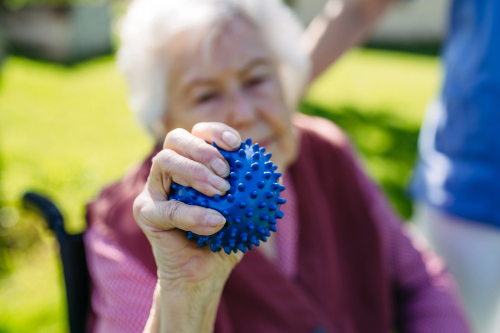
Contact A Chicago Nursing Home Attorney Today
At Nursing Home Law Center, our experienced Chicago abuse lawyers have successfully represented numerous victims and families. We focus on holding negligent facilities accountable to ensure residents receive the care and respect they deserve.
Our Illinois nursing home lawyers are based in Chicago, IL, and serve victims across the state, and throughout Chicago neighborhoods including:
If you are looking for a Chicago nursing home abuse lawyer near you, who truly understands the local landscape, we can help.
We fight tirelessly to secure financial compensation for victims of nursing home abuse and neglect. Our comprehensive legal knowledge makes us well-equipped to handle your case from start to finish. If you or a loved one has suffered abuse or neglect in a nursing home setting, act now.
Contact us today for a free consultation to discuss your case and explore your legal options. Let our Illinois nursing home lawyers help you seek the justice and compensation you deserve, ensuring responsible parties are held accountable for their actions.

